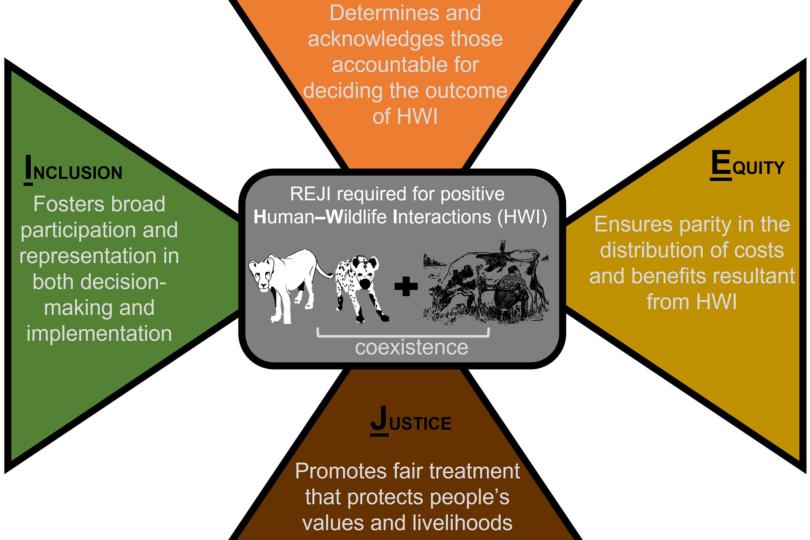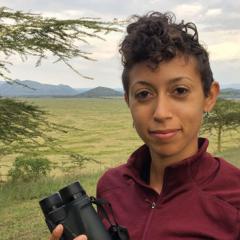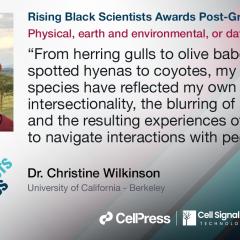Wilkinson publishes on responsibility, equity, justice, and inclusion in dynamic human–wildlife interactions
Christine Wilkinson’s February 2023 paper presents a framework to expand assessment and anticipation of human-wildlife interaction outcomes that incorporates the principles of responsibility, equity, justice, and inclusion into conservation-oriented activities.
In a nutshell:
-
Human–wildlife interactions (HWIs) are pervasive, and future global change will exacerbate negative outcomes
-
Traditionally, HWIs have been framed as occurring along a conflict–coexistence continuum, where win–win scenarios are sought
-
HWIs should rather be considered as a life cycle, to incorporate the plethora of outcomes – where interactions could be positive, negative, or neutral for one partner in the dyad – that vary in importance and over time
-
Integrating responsibility, equity, justice, and inclusion as governing principles into the development and practice of conservation activities can reduce conflicts between humans and wildlife
-
If left unmitigated, negative outcomes from HWIs challenge the sustainability of human livelihoods and reduce community support for conservation, impacting the long-term survival of species
Read the full paper in Frontiers in Ecology and the Environment.
Citation: Responsibility, equity, justice, and inclusion in dynamic human–wildlife interactions. Nyeema C Harris, Christine E Wilkinson, Gabriela Fleury, Zoliswa N Nhleko. Front Ecol Environ 2023; doi:10.1002/fee.2603



